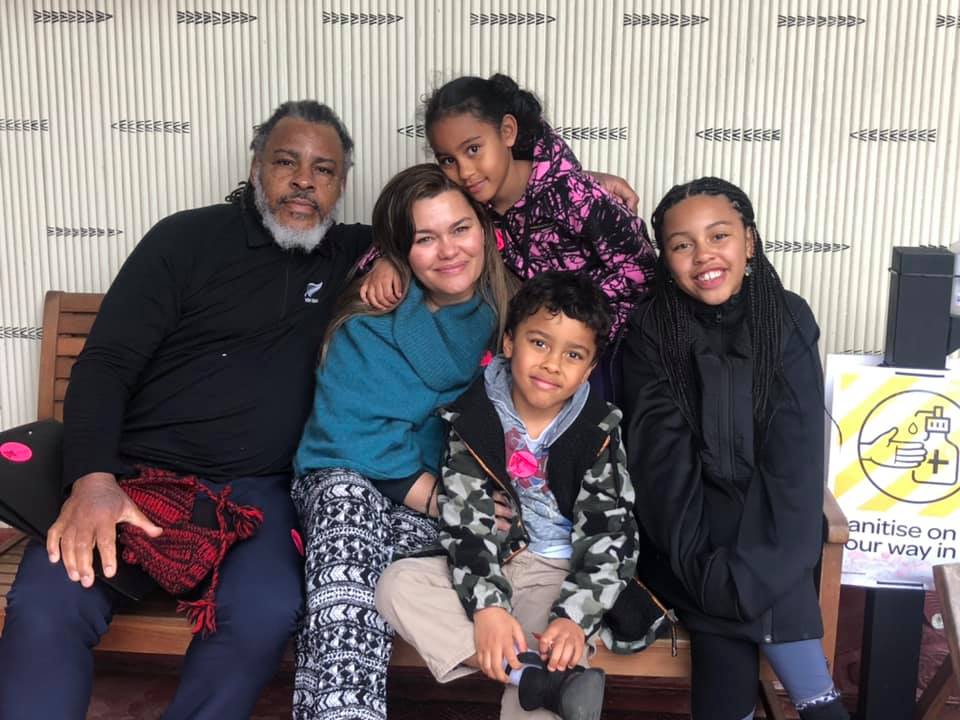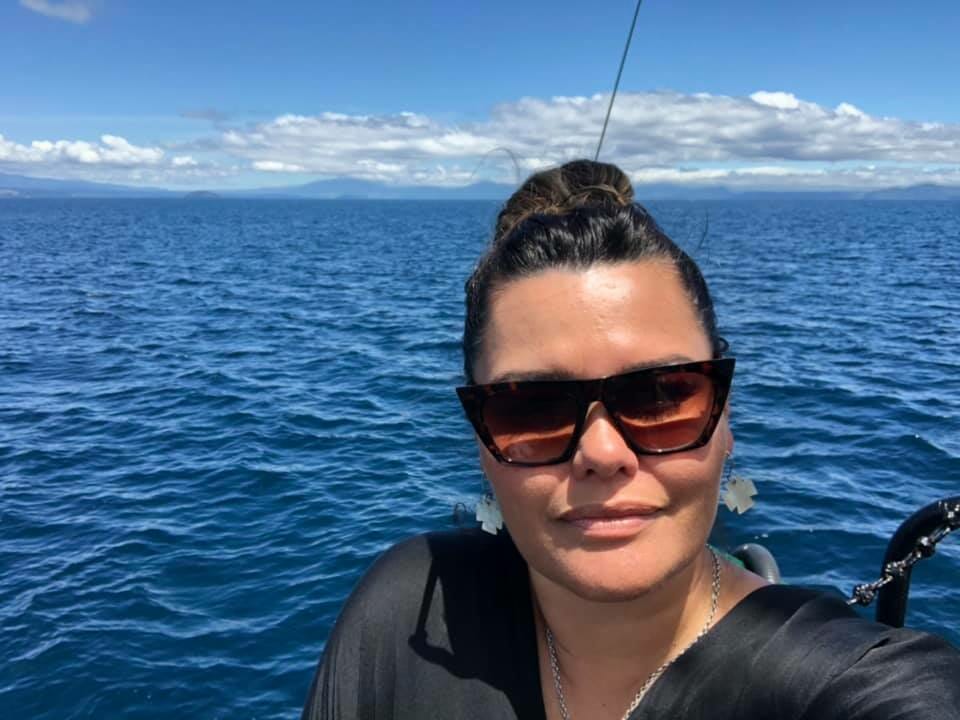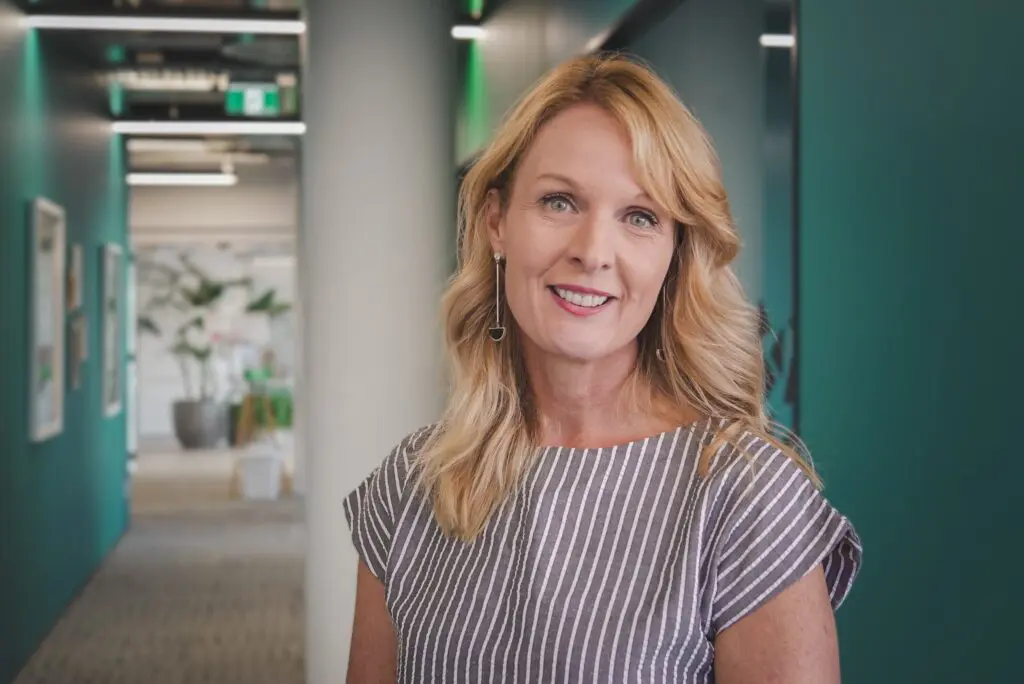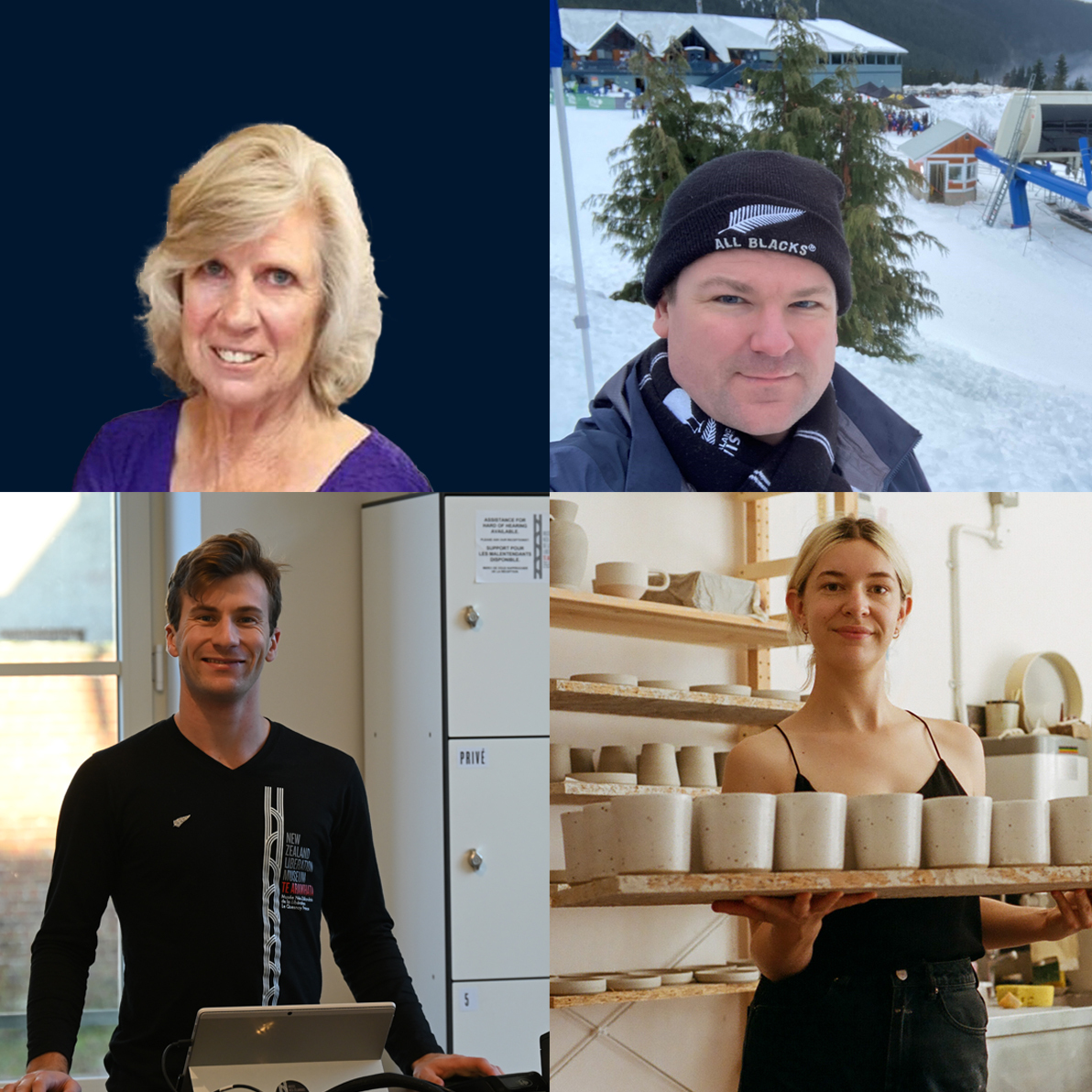Sarah Smith on coming home and the fight against inequity
After living and building a life in the United States for more than twenty years, Sarah Smith has returned home to New Zealand. We talked to her about her decision to come home more than a decade earlier than planned, her work in combatting racial inequities, and how she sees this work now within a New Zealand context, having recently taken on the role of Executive Director of the Courageous Conversation Aotearoa Foundation.
Can you tell us briefly about your professional background?
My professional background has been a journey that was initially anchored in accounting and finance, a skill I learned from my parents who managed our personal and whānau affairs, not through a love of learning math or accounting at school (my High School experience in South Auckland is another story!). When I arrived in NYC in my mid-twenties I discovered a global community, quickly drawn to places like the United Nations where a friend invited me to a staff party and I was brushing shoulders with Kofi Annan – I guess I realised that I had this immediate access to this global arena and from that point on it shaped my tertiary studies in NYC and where I wanted to work. I had the option to decide on an entry role either at the UN or with the Ministry of Foreign Affairs and Trade (MFAT) and I ended up showing my allegiance to NZ, spending around ten years working for both MFAT and then NZTE. A decade in with a NY degree and growing family, I started my own company managing events and projects in the US for New Zealand and US non-profits. Ultimately this directed me to the well-oiled machine of philanthropy in the US which is both a fascinating and challenging space to work in.
What influenced your decision to return to Aotearoa?
It has always been the dream to return to Aotearoa one day and I made a personal commitment to myself and my whānau to be able to set my feet on home soil every year I spent away, which means I’ve flown across the Pacific at least 22 times in each direction, the last 12 of those journeys with children in tow. In February 2020 we had committed our twins to fabulous schools in NYC after a gruesome application process, and declared to our whānau that we’ll be moving permanently to Aotearoa in 2033 to finally settle after the kids had graduated… Covid changed all of that!

We were on one of the last flights out of Houston a month later, arriving in NZ one day before the country went into level 4 lockdown in March. We found a place to quarantine in Auckland through the kindness of friends “stuck” in Chicago, which ended up being our interim rental here. Beds were left unmade in our small NY apartment which is now almost packed in boxes awaiting our next move…
As a Māori woman business leader who has recently come home, what have you noticed about the culture and society in New Zealand and how they respond to female ambition?
I’m not sure what female ambition is, other than to speak from the perspective of being a mother who will always fearlessly advocate for my children’s needs and rights to the very best standards this world can offer. Being a Māori woman who has had to navigate a dominant white patriarchal society, education, corporate, business structures and systems all of my life, that have persisted over the generations due to colonialism in Aotearoa, it has been a life-long journey that requires resistance, grit, fortitude and the need for space to reflect, recover and heal.
As a business woman returning to a corporate New Zealand environment after being in the US so long, I’m inspired to see the many thriving fellow Māori women – and men – business owners, executives and community leaders and it feels great to be in affinity with other Māori entrepreneurs after being one of a small few in the US. [The “Offshore” view of Māori is an entirely different range of tensions which is another article in itself.] Outside of the Māori business landscape however, I am also appalled at the lack of infrastructure in NZ to champion equity for Māori and other marginalised people in Aotearoa and have noticed a disconnect or delayed response between mainstream New Zealand and movements such as #MeToo and #BlackLivesMatter compared to other parts of the world. The intersection of gender and race is an important space for me to interrogate and I don’t think that NZ is as progressive as we might like to think we are. All we need to do is to look at just a few of the terrible statistics out there such as the 63% of incarcerated women in NZ being Māori when the Māori population sits around 15%; that outstrips all in the OECD and is systemic. And that is in a country that’s had legal prostitution since 2003 so to me it suggests that being Māori has worse outcomes than merely being a woman in NZ, so being a Māori woman? Good luck!
I feel there is so much more emphasis in NZ on the concept of “equality” which is not as targeted nor as transformative as an equity lens offers, which also requires us to address the past wrongs that can bring about a level playing ground in order for Māori, Pasifika and other marginalised communities an ability to compete and thrive in “Corporate NZ”. Just look at the introduction of a Māori procurement policy for the $42B goods and services with the NZ government – I could not believe that in 2020 NZ still did not allocate a portion of it’s governmental contracts specifically for Māori suppliers, especially when I have been able to access government contracts in NY for years as an Indigenous woman business owner. Australia has had an Indigenous Procurement Policy in place for years as well. Here in NZ we are supposed to be in partnership under Te Tiriti and this is not at all reflective of a partnership in the economic development sense. How has this been ignored for so long when NZ’s CANZ partners are performing better on this particular measure?
You’ve recently joined the Courageous Conversation Aotearoa Foundation as the Executive Director. Can you talk to the work that the Foundation does? Why is it so important?
I have long admired the Courageous Conversation™ framework which I came across in New York as I navigated the independent school system for my children. The founder Glenn Singleton who hails from Baltimore presented to my daughter’s NY school around 2015 and it was the first time I felt as though someone was able to harness a room full of people from different races and disparate life experiences to engage in a conversation about difficult and often uncomfortable topics on race and racism and how it impacts our lives, families, schools and workplaces and systems. I joined the US board of the Courageous Conversation Global Foundation in 2017 and after returning to NZ in 2020, followed by the killing of George Floyd that saw protests all over Aotearoa while also acknowledging issues Māori had been voicing for generations, the time was right to establish the Courageous Conversation Aotearoa Foundation. The work speaks for itself and has been self-sufficiently growing in the private and governmental sectors here in NZ for six years already so the Foundation is built on a proven method and deliverables thanks to an incredible team that understands the importance of authentic Treaty-based partnerships.
Grounded in Te Tiriti we offer a protocol for healthy and productive conversations about race and racism, deepening our collective understanding of racial equity. The aim of the Foundation is to offer this protocol and learning to the community for free. This work is important not just for those who need additional support, but for all in our community so we can collectively address these issues and live to our fullest potential in this world. It can’t be built on the backs of the already marginalised few. It’s also evident that when diversity, inclusion and equity policies are prioritised within corporate entities, that economic outcomes improve – just ask one of the global companies headquartered in the US. If the backlash from #BLM didn’t highlight that I don’t know what will. We’re still interconnected economically, otherwise we wouldn’t care what is happening with foreign trade, in the stock market or with exchange rates.
Courageous Conversations works to elevate racial consciousness in Aotearoa. After being away from New Zealand for so long, have you noticed any change in racial consciousness since you’ve returned?
I can’t say I’ve noticed much change in racial consciousness in mainstream New Zealand upon return, but 2020 was a big year shifting perspectives I think. The attempts that Stuff made to acknowledge the prevalence of racism in NZ media / society was encouraging, but I always go back to those who are at the decision-making table. Who is on your executive leadership team, your board of directors, or the stakeholders who hold economic power that are able to both financially and spiritually champion these efforts? It is uncommon to think of the spiritual sense within a corporate entity but there is more demand for an integrated work-life-environmental balance so I believe it’s important to speak to this aspect. This is not an overnight fix but an ongoing commitment that requires a type of unrelenting perseverance and non-negotiables to really reverse the many negative statistics we have in NZ. Ultimately it requires buy-in from the most senior in leadership. It requires courageous leadership which is why the Foundation will also be developing a Courageous CEO and Governance Leadership programme for both for profit and nonprofit (philanthropic) leaders.
I have to remain hopeful and it is encouraging to see the many change makers in the existing corporate NZ landscape – particularly in Diversity-Inclusion roles although in NZ these roles often forget to include the “Equity” piece, or they isolate the role so it’s not integrated across the organisation and ends up being tokenistic and not transformative. I do worry that this gives us a false sense of progress. Interests often default to the majority white patriarchal influencers that dominate our economic and political landscapes. This is why representation at the very top, matters.
The theme of International Women’s Day this year is #ChooseToChallenge. What is your challenge to New Zealand?

I guess my challenge to New Zealand would be to view the negative statistics as if they are impacting your own family, and then to interrogate why you wouldn’t do anything to make whatever changes you can make in your own lives, your community, your workplace or schools to address societal inequities. Imagine if that was your own mother or sister or daughter in prison – I bet anyone would fight tooth and nail to reverse that reality. We can each take a small step to look in the mirror, reflect and acknowledge how we can be part of the solution, to not just reimagine a better future for our mokopuna, future generations, but to actually use our positions of privilege, access and influence to help drive that change. March is not only International Women’s Month but it is also when we have International Race Relations Day and the tensions that have long existed around women’s movements, whether they be in the US or NZ, is that white women have often dominated the narrative which will always be contentious for women of colour. I know there are white/pākeha allies out there – I challenge them to come forward and to work in allyship with people of colour. The first step is to understand what an ally looks and feels like.
Is there a particular connection that you’ve made in your life that has amplified your career in some way?
I’ve had several connections who have amplified my career and often it’s been other women. There are at least five older Māori women in NZ who come to mind right now who I have admired and learned from. Those who helped me recognise what I needed to do to get up from the floor after being drop-kicked by a monocultural workplace, and stood by me along the way. It is also the two US-based NZ women of a similar age as me, who help me identify pathways forward when in oppressive environments. And it is has also been two incredible women, Bess Pruitt who sadly passed in September 2020, and her sister Harriett McFeeters, who are African American and have lived through segregation and the Civil Rights movement; they gave me a room to board in their family home in the Bronx and acted as ‘sponsors’ for my student visa so I could see out my BA in NYC, and then guided me through nearly every career turn that happened since. That’s the concept we understand as whakawhanaungatanga.
What’s a piece of advice that you would give to young women early in their career?
Identify your passion in life as early as possible and start working in that area as soon as you can. Sometimes accessing those spaces might not be in the form you imagined such as starting at an entry level, but gaining access is important so you can get a sense of the environment and internal practices. Challenge systems. Build relationships. Don’t be afraid to question things. Approach with trust that everyone is coming from the best intentions and be ready to stand your ground because one day you will need to.
What are your hopes for 2021?
I hope that in 2021 the world can eradicate the threat of Covid-19 which is impacting communities of colour at greater numbers than others, so that children around the world can return to in-person learning. And I hope that we never forget the impact of 2020 around the globe, that saw the simultaneous crises in both the pandemic and racial injustice. That needs to remain a turning point in this lifetime for the entire world to spur systemic change.
COMING HOME?
Resources
We’re here to support returning Kiwi. Here’s our list of resources to help you plan your return and next steps.
Jobs
Looking for a new role in New Zealand? Visit the Kea job portal and find your next career opportunity.

 MENU
MENU









